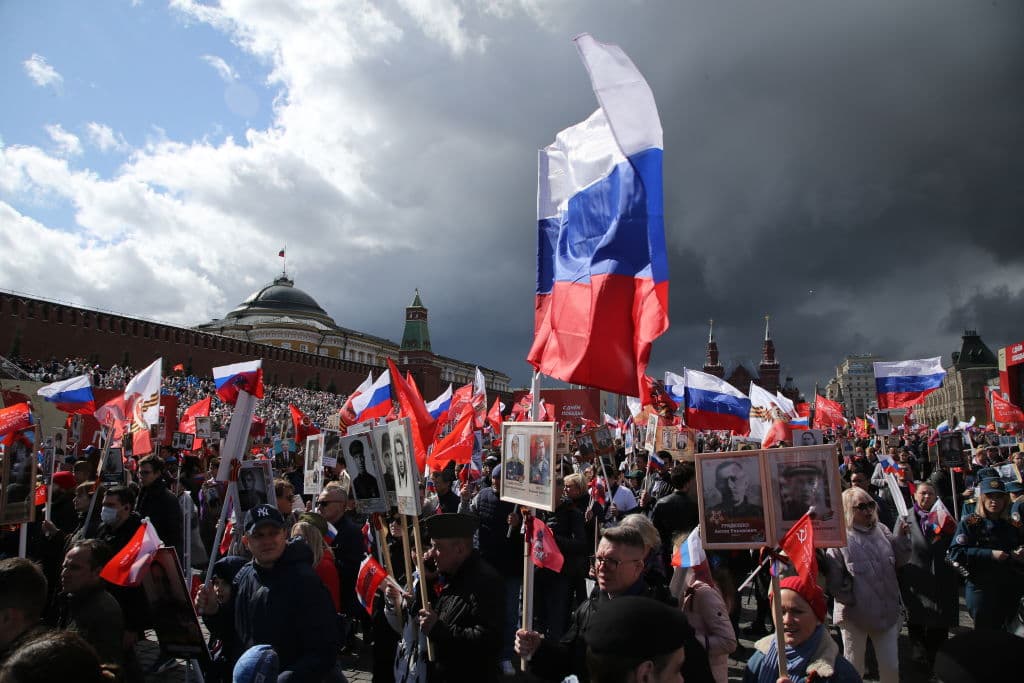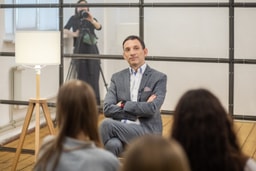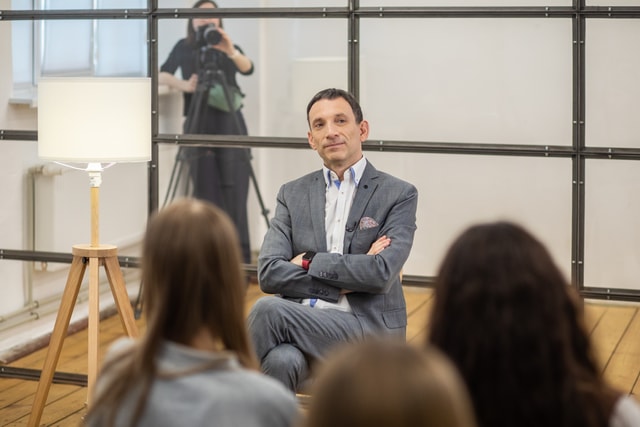Vitaly Portnikov: The unknown country

Editor’s Note: This guest essay is written within the PEN Ukraine “Dialogues on War” project, supported by the U.S. Embassy in Ukraine. The opinions expressed in the op-ed section are those of the authors. They do not purport to reflect the opinions of the Kyiv Independent.
Three decades after Ukraine’s independence, many Ukrainians have yet to cross the borders of their country, let alone their native regions.
The world “on the other side” remains reduced to a scene on TV, left to the imagination.
The first weeks of Russia's full-scale war against Ukraine were followed by the Kremlin's occupation, atrocities, missile bombardments, and as a result the eventual rejection of Russian culture by Ukraine
They also came with public campaigns to rename Ukrainian streets, dismantle monuments, and alter school curriculums commemorating representatives of Russian culture and history.
I have followed the progress of such campaigns with a bitter smile, not because I disagree that streets in Kyiv or Lviv should not bear the name of a person that is in no way connected to Ukraine, but because of the following question:
Do we know anything about this country that has assaulted us, aside from the few names listed in school textbooks?
What do we know about Russia, and what should we know about it?
I have worked as a Ukrainian journalist in Russia for 18 long years and during that period, my long-time dream came true: My Ukrainian audience came to realize that their nation’s capital is Kyiv, not Moscow.
Russia became a foreign country thereafter and Ukrainians’ interest in their neighbor declined.
After that point, my every effort to write on Russian politics was met by an angry comment from a reader or viewer: “No need to write about this – we’ve got our own problems!”
I had no idea how to explain to people that Russia is actually Ukraine’s biggest problem and that our own issues are nothing but derivatives. Unless you are interested in understanding the full scale of the problem that is Russia, it will come in with tanks and eliminate you and you will be unable to resist.
Our lack of understanding of the world outside Ukraine is the outcome of total ignorance and indifference.
Ordinary citizens are unaware of why they should be interested in Ukraine’s foreign affairs. Journalists, experts, and politicians focus on internal issues, as though we lived in Norway or Switzerland.
At the end of the day, any disaster brings with it child-like astonishment. One might always ask whether anything would have taken a different direction if we had anticipated such events.
Yes, it would have.
Ukraine’s citizens would have recognized that this neighboring country of theirs is not a “brother.”
They would have anticipated needing to defend themselves in order to survive.
They would have voted for those advocating for Ukraine’s energy independence in lieu of cheap gas and realized that the military needs to be expanded despite the expense.
They would have known that Russia did not start this war due to some kind of insult and that Ukrainian authorities were not able to stop the war not because “they themselves were gaining something off of it.”
Ukrainians would have understood that the choice has always been simple: We must stand up for Ukrainian statehood and sovereignty, or else our land will become a piece of the Russian Federation.
There is no such thing as “halfway.”
These conclusions may seem obvious as they have never been concealed, not even by Russia itself.
For now, everything depends on Ukraine’s military – such concerns are of no use if we lose this war. However, it is critical to determine whether Ukrainian society will remain equally concealed when peace comes.
Will Ukrainians revert back to placing Russia behind a stone wall, never to learn anything about it?
If we do, this will not work. Russia will find a way to remind us, even if Ukraine transitions back to safety and prosperity.
When I shifted to pursuing journalism in Poland, I recall colleagues of mine told me that Poland is not the same as it once was. “Poland is in NATO, it’s in the EU, our eastern neighbor is now a marginal issue.”
This is incredible, I told them. Hasn’t Polish history taught you that, if you don’t take an interest in Russia, Russia will surely take an interest in you? They just laughed. In their eyes, Russia was not capable of such wickedness.
Even when Ukraine regains its sovereignty and security, this will not mean that evil will not catch up to us in a different form – a war in Belarus, the collapse of Russia, the fleeing of millions of refugees, you name it.
Ukraine cannot afford the luxury of living under a rock. This is the privilege of prosperous countries surrounded by other prosperous, well-meaning neighbors. We are not so lucky.
Russia has done everything in its power to prevent Ukrainians from taking an interest in the outside world. It has succeeded to the extent that Ukrainians stopped paying attention to Russia even after it crossed our borders in 2014.
Russia is not just the country of Tolstoy, Bunin, Dostoyevsky, and Tchaikovsky – you can decide to enjoy other authors and listen to other composers.
The Russia that has attacked us is the country of Putin, Shoigu, Medvedev, and Lavrov. This Russia is our neighbor, a state of aggression, imperialism, and anachronistic rule.
And we know almost nothing about it.
This ignorance contributes to the neglect of our own future and security. We cannot afford this luxury. We must take an interest in our foreign affairs.
This is the only way for Ukraine to survive.










